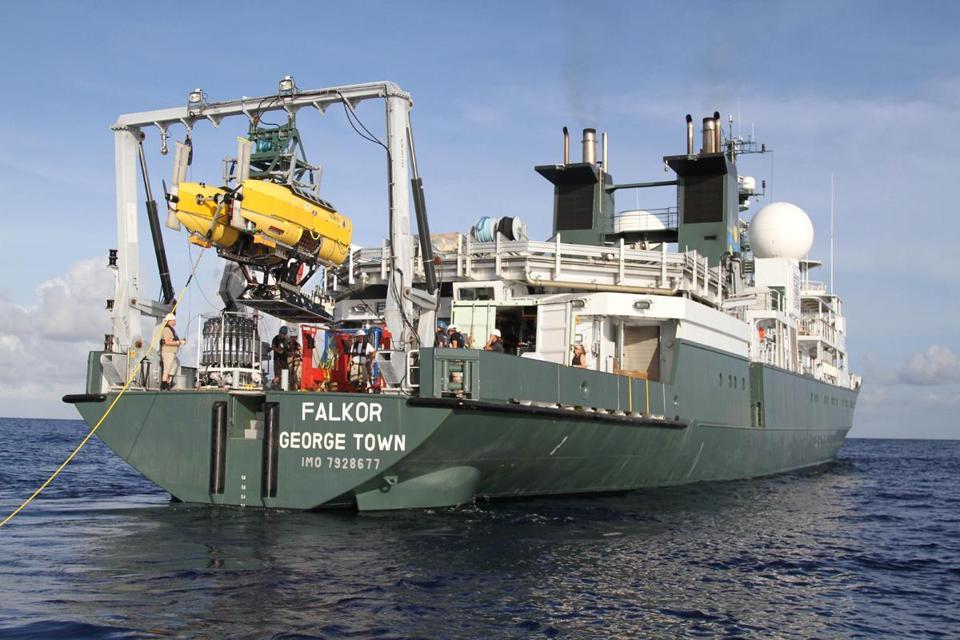Can the tech industry muster the capacity to saves the oceans from overfishing, habitat destruction and acidification?
“Oceans are essential, they are our pharmacy and pantry and a primary source of protein for billions,” said Wendy Schmidt, founder and vice president of the Schmidt Ocean Institute, during a panel on ocean innovation during Dreamforce, the annual conference sponsored by cloud computing company Salesforce.
The stakes are enormous, even if viewed in strictly financial terms. A World Wildlife Fund report estimates the monetary value of the world’s oceans at $24 trillion.
“Entire countries are dependent on the sustained health of the ocean,” said Douglas McCauley, a professor at UC Santa Barbara. “If the ocean gets sick we are in big trouble. Not only do our wallets take a hit, our food supply, weather, air, and health all will change for the worse.”
Ocean-based industries represent a marine industrial revolution that could cause a great extinction, McCauley said. Factory farming, more people living near coasts, seabed mining grinding up ocean floors — the picture appears bleak.
High-tech help is on the way. Boyan Slat, CEO of The Ocean Cleanup, is working to clean up plastic garbage with a method whereby it concentrates itself, reducing the cleanup time from millennia to years.
“We hope that our ocean cleanup can be a symbol of us using ingenuity to solve this problem and make sure the society can be sustainable so that we can continue to exist,” he said.
The Schmidt Ocean Institute, co-founded by Wendy Schmidt and her husband, Eric Schmidt, executive chairman of Google, is combining advanced science with state-of-the-art technology. The institute supports collaborative scientific research aboard Falkor, an oceanographic research vessel equipped with modern equipment such as high definition cameras and other gadgets.
“We have to start using our resources more wisely to protect the things we most care about,” said Schmidt, who also sponsors an XPRIZE for ocean health.
Travis Fabian, senior director at Salesforce Foundation, discussed MAZU, a new app that enables users to track and snap photos of unknown vessels that may be fishing illegally. “Creativity can solve problems like this,” he said.
The promise of technology won’t be realized without policy change, however. The fate of the oceans may be tied to the results of the decisions on climate change to be made by the gathering of world leaders in Paris in December, formally called the United Nations Climate Change Conference (COP 21).
“These two weeks in Paris will decide what the next 1,000 years will be like for the oceans,” McCauley said. “Brave decisions will help the oceans stay a life giving neighbor. Weak leadership will send the seas sailing towards a hotter and more acidic future. Everything we do for the oceans matters less if we fail to control climate change.”











